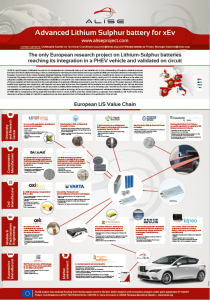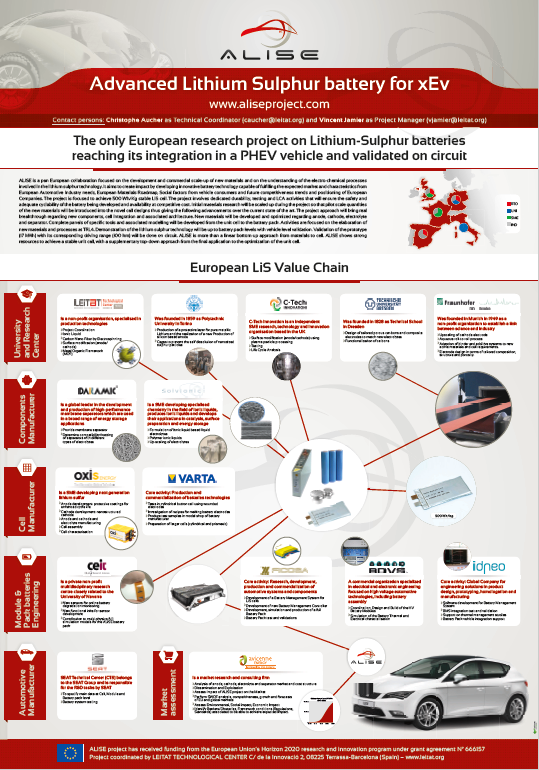ALISE project presented during EU Project Day on eMobility
 ALISE, the European Research Project on Lithium-Sulfur Batteries for electric vehicles, presented its recent activities and poster during the EU Project Day on eMobility that took place in Brussels on the 1st of December. Click here to download the agenda of the event. The event was organised by the European Battery, Hybrid and Fuel Cell Electric Vehicle Congress.
ALISE, the European Research Project on Lithium-Sulfur Batteries for electric vehicles, presented its recent activities and poster during the EU Project Day on eMobility that took place in Brussels on the 1st of December. Click here to download the agenda of the event. The event was organised by the European Battery, Hybrid and Fuel Cell Electric Vehicle Congress.
The European Project day is aims at providing the audience with a complete overview of the different programs supported by the European Authorities (FP7, Horizon 2020, IEE, EUROSTARS, INTEREG, …) & related funded projects dealing with eMobility.
This now traditional Brussel’s rendez-vous is a unique opportunity to identify possible actions, overlaps, synergies and/or gaps… and obviously the place to start new projects!
This year, the day will be organized in dedicated transversal topic sessions so to ensure homogeneity of the discussions as well as interactivity between the projects of the different programs!
ALISE is a pan European collaboration focused on the development and commercial scale-up of new materials and on the understanding of the electrochemical processes involved in the lithium sulfur technology. It aims to create impact by developing innovative battery technology capable of fulfilling the expected and characteristics from European Automotive Industry needs, European Materials Roadmap, Social factors from vehicle consumers and future competitiveness trends and European Companies positioning.
The project is focused to achieve 500 Wh/Kg stable LiS cell. The project involves dedicated durability, testing and LCA activities that will make sure the safety and adequate cyclability of battery being developed and available at competitive cost. Initial materials research will be scaled up during the project so that pilot scale quantities of the new materials will be introduced into the novel cell designs thus giving the following advancements over the current state of the art. The project approach will bring real breakthrough regarding new components, cell integration and architecture associated. New materials will be developed and optimized regarding anode, cathode, electrolyte and separator.

